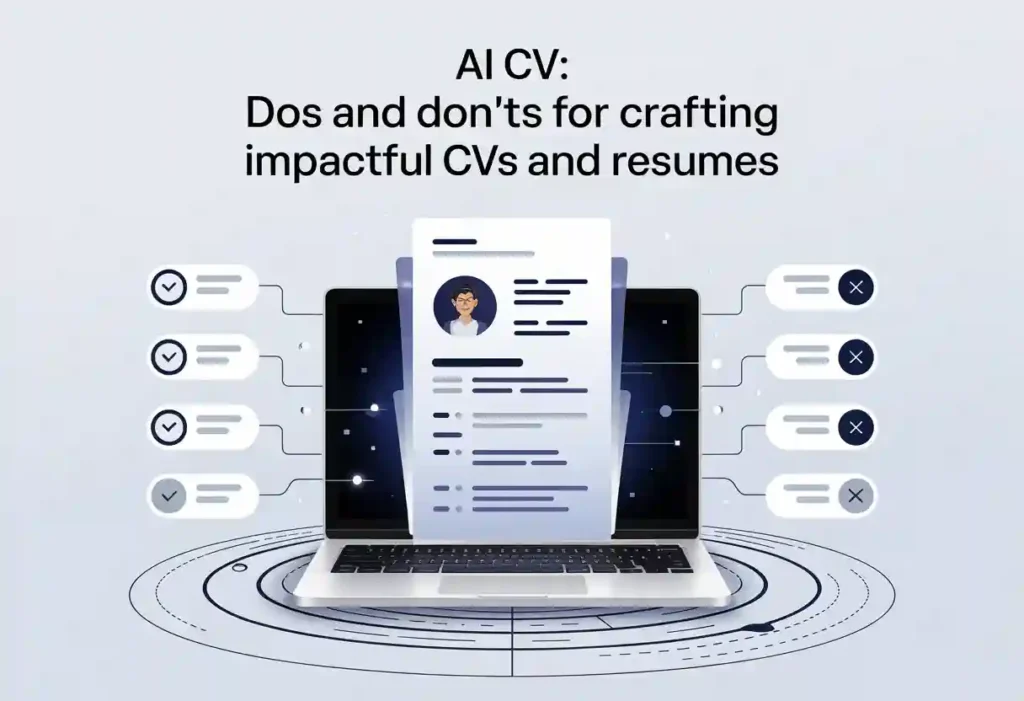“What is Your Weakness?” Job Interview Question
“What is Your Weakness?” This question isn’t a particular favorite among job seekers during a job interview. Why?
Employers ask this question not to highlight your flaws, but to see how you handle a challenging question and to understand your self-awareness and ability to improve. Understanding this can help you approach the question in a positive light.
Picture this. You’ve finally landed an interview. You’re excited, nervous, and doing your best to sell yourself. Then, out of nowhere, you hear the “What is Your Weakness?” question, and you freeze. Your mind begins to spiral for the best answer, and at the same time, you’re thinking of the best weakness to say.
This dreadful question can crush your confidence and make you even more nervous. That is why you must PREPARE for that big day. One way to maintain composure is to take a deep breath and remind yourself that weaknesses are okay. Another tip is to practice mindfulness and focus on the present moment.
Being prepared doesn’t mean you can predict every interview question. However, you can expect common questions like “Tell about Yourself,” “What is Your Weakness?” and “What is Your Strength? ” and prepare for them.
You have to understand the question, know your weaknesses (both good and bad), and develop a winning answer to this common interview question.
This post will guide you on tackling this popular question and the good and bad weaknesses to provide in an interview.

Why Does the Hiring Manager Ask the ‘What Is Your Weakness?’ in a Job Interview?
An interview is about getting to know you as a candidate. Your CV and resume are both pieces of a puzzle, and the hiring manager wants to know who you are beyond that. When interviewing candidates, employers want to determine the personality types of their company.
They want to relate what you can and cannot do to your resume and determine if you are (indeed) the right candidate fit for the role.
Nevertheless, hiring managers ask this question for the following reasons:
- To know if you are self-aware
- To know if you are honest
- And to know if you are confident
- To know if you are open to growth and self-improvement

What is Your Weakness? (10 Cases and Good Answers)
- “I struggle with time management and often procrastinate on tasks.”
Remedy
To remedy weaknesses in time management, you can set clear goals and deadlines for yourself, break larger tasks into smaller chunks, and use tools such as calendars and to-do lists to stay organized.
- “I tend to get easily overwhelmed in fast-paced environments.”
Remedy
To overcome your tendency to become overwhelmed, you can practice stress-management techniques such as deep breathing, yoga, or meditation.
Also, learn to prioritize your tasks and ask for help when needed.
- “I struggle to delegate tasks and prefer to handle everything myself.”
Remedy
To help with your difficulty delegating tasks, you can work on building trust with your team members and reminding yourself that delegating tasks can help improve overall productivity.
- “I sometimes struggle with being assertive and speaking up in group settings.”
Remedy
To resolve the struggle with assertiveness, you can practice active listening and communication techniques, set clear boundaries, and work on building confidence in your abilities.
- “I can be a bit of a perfectionist and have trouble letting go of things that aren’t perfect.”
Remedy
To fix perfectionism, you can set realistic expectations and learn to let go of small mistakes.
- “I tend to take on too much at once and struggle with setting boundaries.”
Remedy
To tackle tendencies to take on too much at once, set clear boundaries, learn to say “no” when needed, and prioritize your tasks.
- “I can be quite shy and struggle to build relationships with new people.”
Remedy
To fix shyness, try practicing social skills, joining social or professional groups, and being more open-minded and approachable.
- “I tend to be a bit of a workaholic and have trouble disconnecting from my work.”
Remedy
To prevent workaholic tendencies, set specific working hours, take breaks, and disconnect from work when necessary.
- “I tend to be too critical of myself and others.”
Remedy
To nail tendencies, be critical, build empathy, and be more positive and constructive in your feedback.
- “I sometimes struggle with adapting and can resist change.”
Remedy
To overcome your inability to adapt, try being open-minded, learning to be more flexible, and seeing the benefits of change.

How to Answer “What are Your Strengths and Weaknesses ?”
The ‘What is Your Weakness and Strength’ question is a classic yet delicate. Answering it requires strategy, but with the proper preparation, you can confidently navigate this question during the interview.
Answering this tricky question requires balance and finesse. However, let’s cut to the chase and delve right into it.
How do you answer the question, “What are your strengths?”
This question may (most likely) be asked simply as “What are your strengths?” However, hiring managers tend to rephrase it differently.
For example, the interviewer may ask, “What word would your colleagues and manager use to describe you?” or “How would you describe yourself?”
Any question encouraging you to discuss your positive attributes indirectly asks you to share your strengths. Below are helpful tips to answer this question:
Relate Them To The Job Description
This is the first step in answering this question. The interview is also about the company, just as it is about you. When sharing your strengths in an interview, they must align with the company’s needs. To achieve this:
- Read through the job description
- Research the company’s culture
- Visit the website of the organization
- Go through their social media accounts
Familiarize yourself with the company’s mission, values, and goals. Doing so demonstrates your commitment to the role and eagerness to contribute to the organization. This level of dedication can set you apart in the interview process.
After learning about all of this, identify your most relevant strengths in relation to the job requirements and discuss how these strengths can contribute to the organization.
Connect your strengths to the job role in a way that positions you as someone who can advance their goals and solve their problems.

Narrow Them Down: Be Specific
We all have numerous strengths and skills that anyone would admire. However, the hiring manager isn’t asking you to do everything for the job. This is why jobs have requirements.
Instead of providing a generic and broad list of your strengths, focus on key strengths and skills that align with the job requirements.
For example, if you say you are proficient in writing, does that mean you are skilled in SEO or copywriting?
Another example is if you claim to have effective communication skills, you should specify if you have public speaking, presentation, or social media skills, where you communicate and engage with the audience.
Using this approach will allow you to add more depth and authenticity to your answer and improve your effectiveness as a candidate.
Tell A Story
We’re discussing giving real examples to create an authentic answer and back your claims. As the popular axiom says, ‘Show, don’t tell.’ When answering interview questions, provide examples and tell a story.
Real-life examples make your answer more concrete and contextualize your response. Concepts are better understood when there is a story to illustrate. Refer to a time when you achieved something because of your strengths.
For example, if you claim to take feedback or criticism very well, you can tell the hiring manager about a time you used feedback/critique to improve a client presentation to convey complex data.
When you provide examples, it shows interviewers that you are a thoughtful person, and they will appreciate your efforts.
Be Brief
When crafting your answer, remember that it is about quality and not quantity. Instead of chanting a litany of your strengths, identify some strengths and qualities relevant to the job interview.
Being concise will prevent you from spilling unnecessary details and overwhelming the interviewer.

How to Answer “What is Your Weakness?”
This question can be asked in different ways, such as: What technical skills do you lack? What parts of the job description do you feel underqualified for?
No matter how the interviewer phrased the question, the underlying message is the same. The following interview tips can help you craft winning responses.
Be Completely Honest: Authenticity Works
This may sound banal or cliché, but it is effective. Claiming no weaknesses is arrogant and conceited, which might impair your chances. Admitting your most significant weaknesses is challenging but worth it.
No employer wants to hire someone incapable of self-reflection and acknowledging their weaknesses and vulnerabilities. Recruiters value honesty and won’t appreciate generic, humble bragging or scripted answers.
To impress the interviewer, provide an accurate and relatable weakness. A sincere and honest answer will show your professional maturity and will impress the hiring manager.
The best candidates recognize their shortcomings and are authentic about them.

Avoid being cliché
Weaknesses that are disguised as strengths must be avoided at all costs. In this context, being cliché means providing overused or insincere inadequacies that do not give meaningful insight into one’s self-awareness or growth.
Consider the following examples of overdone and cliché weaknesses:
- I love working to a fault, and I’m a workaholic
- I research too much
- I’m a bit of a perfectionist
- I think about so many ideas
- I’m too detail-oriented
- I spend too much time obsessing about my goals
These weaknesses are proper for some, but these answers are scripted and disingenuous. A genuine weakness would sound less cliché.
Keep it professional
Remember, this is a job interview, not a pep talk. Crafting your responses using a professional approach demonstrates your discretion and emotional intelligence.
While you must provide fundamental weaknesses, you must also avoid oversharing of details of your personal life or making it too personal. Employers have no business knowing about your crisis.
For example, a personal weakness may sound like this: “My weakness is that I’m unlucky with people,” or “I have trouble getting over depression.”
A more reasonable and professional weakness would look like this;
- My greatest weakness is that I have a hard time delegating tasks
- I lack communication skills (e.g., public speaking, written communication)
- I have difficulty working last minute
- Sometimes, I struggle with self-criticism
When you’re professional, you position yourself as someone who can navigate the work environment and align with the company’s expectations.

Be Very Specific
This is a fundamental concept in job interviews. Giving vague or general weaknesses has less impact and may not provide a clear understanding of what you’re saying. For example, you can’t just say, “My biggest weakness is that I lack technical skills.”
By technical skills, do you mean you lack data analysis skills, computer programming, or problem-solving? If you say you lack people skills, do you mean leadership skills, team management skills, or conflict resolution?
When you pinpoint specific weaknesses, you demonstrate that you are very self-aware and give the recruiter a better understanding of your personality.
Show Confidence
It’s not what you say but how you say it. You might say something that makes sense, but how you frame it can change how it is perceived.
Explain yourself clearly and confidently when responding to the “what are your weaknesses” question in job interviews.
Self-confidence is a currency many job seekers grapple with, and this question can destroy your self-confidence. You might even overly use word fillers or give unstable and incoherent replies.
As much as you want to get it right, you must keep calm and collect your thoughts to avoid doing the opposite. Whatever your answers, frame them in a way that doesn’t diminish your overall competence.
For example, you can say, “My biggest weakness is that I have trouble with time management. However, I have recognized the areas I need to improve, and I am more confident in my ability to manage any task more effectively and meet deadlines.”
If you respond or frame your responses this way, you communicate to the recruiter that you are confident and have a positive attitude toward self-improvement.
Mentally Convert ‘Weakness’ to ‘Challenge’
The word ‘weakness’ implies a more permanent situation than a challenge. Reframing your words with ‘shortcomings’ or ‘challenge’ makes the situation look more fixable and controllable by removing the injurious sting of “weakness.”
When you rephrase your words (mentally and verbally), you demonstrate that you see obstacles as opportunities to develop strategies for improvement.
This subtle action signals your self-awareness and positive mindset towards transforming your setbacks into stepping stones and a desire for growth.
Pick a Weakness that Doesn’t Relate to the Job
While this approach works for your strengths, it should not be used when discussing your weaknesses. Never tie your weaknesses to the role you are applying for.
Associating your weaknesses with the company and what they want will sabotage your chances.
For example, suppose the job requirements list communication skills for a sales and marketing role. In that case, you shouldn’t say that your greatest weakness is public speaking or effective communication, even if you are actively working to improve it.
Also, if you are applying for a manager’s role, you shouldn’t say that your biggest weakness is time management or missing deadlines, even if it is a real weakness.
The trick is to talk about a weakness that doesn’t negatively impact or directly impair your ability to perform the role’s core work performance.
For example, if you are applying for a sales and marketing role, you can say that you overly criticize yourself when you can’t close a deal with a customer, but it motivates you to do better.
Describe your improvement plan.
This is an essential step when responding to this question. Ideally, you should provide a solution when you point out a problem.
It applies here, too. Show that you recognize your weaknesses and are taking measures to address them.
Explain the steps you are taking or have taken to overcome your weaknesses. Taking steps to improve shows you are willing to improve and have a growth mindset.
For example: “I know I don’t have much experience with X, but I am a quick learner and am taking physical or online courses to improve myself and learn a new skill to overcome this weakness.”

Samples of Weaknesses For Job Interviews
Pointing out your weaknesses can be tricky, especially when it comes down to selecting the best weaknesses for a job interview.
Whenever you have trouble recognizing your weaknesses, speak with a friend, family member, or someone in your workplace to help you realize and highlight them. They are in a good position to identify your weaknesses.
Below is a list of weaknesses you can use to position yourself as a winning candidate in your interview answer.
- Blunt communication style when offering feedback
- Lack of experience
- Public speaking
- Self-criticism
- Not being confident
- Trouble delegating tasks to teammates and taking on too much workload
- Managing missed deadlines
- Maintaining work-life balance
- Ignoring or unable to handle constructive feedback
- Inability to set realistic goals when working on projects
- Being too detail-oriented
- Taking time on tasks or work products and managing deadlines
- Trouble maintaining a particular work style
- Terrible at teamwork and working in teams
- You find it difficult to provide feedback to others
- Having overly high expectations of others
- Impulsiveness
- Low productivity
- You don’t listen to others
- Organizing
- Procrastinating and struggling with time management
- Making grammatical errors frequently when writing
- Paying too much time on small details
- Anxiety
- Being uncomfortable in meetings
- Last-minute work
- Making basic math errors
- Low-quality work
- Unable to focus on one task at a time
- Overlooking small details
- Inability to work with vague instructions
- Being unfamiliar with specific software
- Slow learning process
- Extremely introverted or extroverted
- Impatience

Sample Answers For “What is Your Weakness” Interview Question
With the tips outlined in this article, below are sample responses you can consider when framing your answer.
Sample Answer 1
Delegation Sample Answer
“My greatest weakness is that I find delegating tasks and responsibilities difficult and uncomfortable, and tend to finish a task myself. Being a team player doesn’t come naturally to me, especially when I have the skills to handle a task myself.
However, in my last job as a manager, I struggled with multitasking, so I had to learn to share responsibilities with my team and colleagues.
I implemented a project management system and attended team-building workshops to avoid micromanaging and maintain control when delegating tasks. This allowed me to follow up with my team, oversee the progress of a project, complete it, and ensure that no deadline was missed.
If my team members get in the weeds, I know the most efficient way to lend a hand. Thanks to this system. I have overcome my weakness and improved my ability to delegate efficiently.”
When you respond this way, you demonstrate your ability to pursue a new skill when a role demands it.
Sample Answer 2
Talkative Sample Answer
It’s important to socialize with my coworkers. I also enjoy developing a mutual relationship with my coworkers by engaging in conversation. Building better work relationships and creating a more welcoming company culture is a tremendous team-building skill.
However, I habitually carry on a conversation to the point where it may distract other coworkers. Being talkative is my greatest weakness.
I think it’s a way to reflect my enthusiasm when discussing a favorite topic. But I’ve realized the importance of concise communication. I’ve learned that there are other ways to connect with my colleagues without distracting them or me from working.
I’ve been working on improving this weakness by setting a timer on my phone to be aware of time. Ever since I implemented this, I have been able to convey my thoughts more succinctly and effectively.”
Sample Answer 3
Workload sample answer:
“My weakness is that I struggle to say no to work. As a writer, I thought doing everything for my clients, whenever the deadline, would impress them. If a client wanted an article the next day, I’d assure them I would deliver, even if I had enough.
I started working long hours, affecting my work-life balance and attention to detail. Sometimes, I missed deadlines.
My manager noticed that I was juggling so many tasks simultaneously that I was producing sloppy, low-quality work. At this point, I realized I had to set boundaries and say ‘no’ or ‘yes, but not immediately.’
I decided to solve this by inquiring about the flexibility of the project timeline and how it fits into my schedule. I committed to maintaining a clean schedule.
This helped me to prioritize my work better, set expectations, have enough time to do more work without affecting my overall work performance, and improve my output.”
Sample Answers 4
Fear of presenting sample answer:
“My weakness is presentation. I am very comfortable with one-on-one and small-group communication.
However, I get very nervous when presenting in meetings or large groups. I have identified my need to improve my presentation skills and am taking steps to overcome this weakness.
I have been taking online tutorials to improve my presentation skills and practice. In addition, I enrolled in a few workshops to brush up on my presentation skills.
I have also been actively seeking opportunities to speak publicly and present in front of people and colleagues inside and outside work to build my confidence.”

Dos
- Do your homework on your weaknesses and know which one you want to present and how.
- Prepare your response ahead of time. This is very essential if you want to impress the recruiter.
- Practice your answer in front of a mirror or with a friend.
- Be truthful but tactful.
- Talk about your weaknesses with confidence.
- While discussing your weakness, narrate how you struggled and the steps you have taken to improve it.
- Frame your weakness as a “skill you want to improve on” rather than a “failure” or “problem.”
- Back your claims with examples.
- Research and understand your weaknesses before presenting them.
Don'ts
- Don’t draw attention to something you can’t explain how to improve.
- Refrain from listing flaws or weaknesses directly related to the job role.
- Don't be ambiguous or vague.
- Don't use scripted answers.
- Avoid dwelling too long on this question.
- Don’t fail to make better resumes with our free resume builder (to land even more interviews).
- Don't focus only on negative aspects; balance with positive actions taken.
- Avoid using weaknesses that come off as clichés or insincere.
- Don't share weaknesses unrelated to professional skills or job requirements.

FAQs
What Is Your Weakness − Best Answer For A Fresher
There is no unique way to answer this question as a fresher. However, there are a few details you should not overlook. As a fresher, you barely have any relevant work experience. All you have is a degree and, in some cases, a certificate in your profession.
So, when discussing your weaknesses in a job interview, you should point out that you do not have as much experience for the job. However, you should also tell the interviewer why you are a good candidate for the job.
Tell the recruiter how you acquired a skill for the job. Explain your desire and willingness to learn more and improve. Consider this sample response for someone applying for a marketing role;
“I am not good with numbers, which is a real weakness. Although basic mathematics is not required for my marketing role, I believe in the importance of having a rudimentary understanding of analytics. I also understand that the professional environment requires a different level of efficiency. To tackle this weakness, I’ve been taking courses in data analytics.”
What Is Your Weakness? Best Answer
The right way to answer this question is to express your answer in three main parts
- Your weakness
- The challenges that come with it
- Your desire and measures to improve it
An answer like this shows the interviewer that you recognize your areas for growth and can take initiative without being told to do so. This self-starter character trait is a plus for any job seeker.
CareerVidz outlines valuable tips on how to answer the “What is Your Weakness?” question in this 12-minute video below:
What Is Your Weakness and How Do You Overcome It?
Your weaknesses are certain areas that can cause you setbacks in your career. Overcoming these weaknesses is very important because it helps you to be more successful throughout your career.
By learning how to improve, targeting areas of deficit, and consistently working towards growth, you will achieve more high-level goals and professional satisfaction.
To conquer your weakness, simply:
- Identify your weakness through self-evaluation, feedback, and reviewing performance metrics
- See the necessity to improve
- Outline a plan to improve, along with clear expectations
- Commit to your goals
- Exercise patience
- Record your progress

Final Thoughts: Own Your Weaknesses and Succeed
The “What Is Your Weakness?” question is not an invitation to showcase your perfections. For an interviewer, knowing your weakness equals knowing your personality and how you are the right candidate.
Admitting your vulnerabilities and explaining your dedication to improving demonstrates your resilience and can impress the interviewer.
Overcoming your weaknesses is challenging, but the valuable tips in this post can help you change the narrative.
Don’t let yourself get caught up in the frustration of having weaknesses. No one is perfect, but with this article’s guidance, you can hold a candle near perfection.
So buckle up and focus on the light at the end of the tunnel. See this question as your motivation to acknowledge and transform your weakness into a strength.
As you strive for improvement, you pave the way for development, ultimately converting your weaknesses into stepping stones.
On this note, step into a brighter, more empowered career future with positive energy and a vision towards success.
Best of luck.
Further Reading: How to be a great employee prospect
- 8 successful job-hunting strategies
- Should you send the same resume for different jobs?
- How to find a job
- Follow us for more tips



